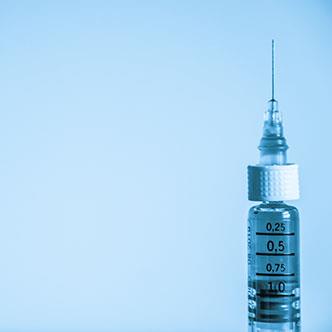
Overdoses aren’t the only fatal consequence of opioid abuse. A recent study found a 436 percent rise in hospital admissions for serious heart infections related to drug use from 2012–2017 related to drug use. The trend was observed at a medical center in Ohio, an area hit hard by the opioid epidemic, and highlights the added strain opioid use has put on both public health and the U.S. health care system.
Presented at the American College of Cardiology’s 68th Annual Scientific Session, this study tracked rates of a serious condition called infective endocarditis. Infective endocarditis occurs when harmful bacteria build up on the heart’s valves or the inside lining of the heart. In the past, infective endocarditis has typically affected older adults who have certain heart defects or an artificial heart valve. However, the condition has become rampant in IV drug users, who get the infection from contaminated needles.
To explore recent trends, researchers looked at hospital admissions for infective endocarditis at The Ohio State University Wexner Medical Center from 2012–2017. The goal was to see how common drug-related infective endocarditis has become and to assess its impact on treatment and survival rates.
Unfortunately, findings are staggering. In 2012, the hospital saw 196 cases of infective endocarditis, 17% of which were related to drug use. By 2017, this number rose to 395, with drug use accounting for half of all cases. Researchers also found that one out of every four patients admitted to the Ohio center for drug-related infective endocarditis died in the hospital that same year.
“What’s most striking is how quickly this problem got out of hand,” said Serena Day, MD, a cardiology fellow at The Ohio State University and the study’s lead author. “Five years ago, this disease was very uncommon for us. Now, it’s become so common that we can’t keep up.”
As authors note, heroin use is to blame for most of the drug-related cases of infective endocarditis. In 2017, heroin accounted for nearly one-third of opioid-related deaths, according to the Centers for Disease Control and Prevention, outranking car crashes as a top cause of death for the first time in U.S. history.
Treating drug-related infective endocarditis is a challenge. In the past, a combination of antibiotics and surgery has saved lives by eliminating bacteria and replacing damaged valve tissue in patients. But since IV drug users with infective endocarditis are more likely to become re-infected with continued drug use, many doctors are hesitant to perform surgery.
“There’s really been a paradigm shift in how we treat these patients at our institution,” Day said, noting that this study is one of the first to examine the impact of the opioid crisis on heart infections. “Many of these patients continue to use, they continue to relapse and they come back even sicker than they were before. This study underscores the fact that, without treating the addiction, these patients aren’t going to get better. There has to be a comprehensive approach to treating this disease.”
Aside from poor outcomes, authors also note the impact that drug-related infective endocarditis has had on the health care system. In this study, almost all patients with drug-related infective endocarditis were insured through Medicaid—a federal and state program that provides health care coverage to low-income individuals. Most patients with drug-related infective endocarditis were also younger than the typical patients affected by this condition.
“As a nation, we need to be aware of these other complications of injection drug use,” Day said. “Treatment for this condition has to include addiction rehabilitation or we will continue to lose lives and precious health care resources.”